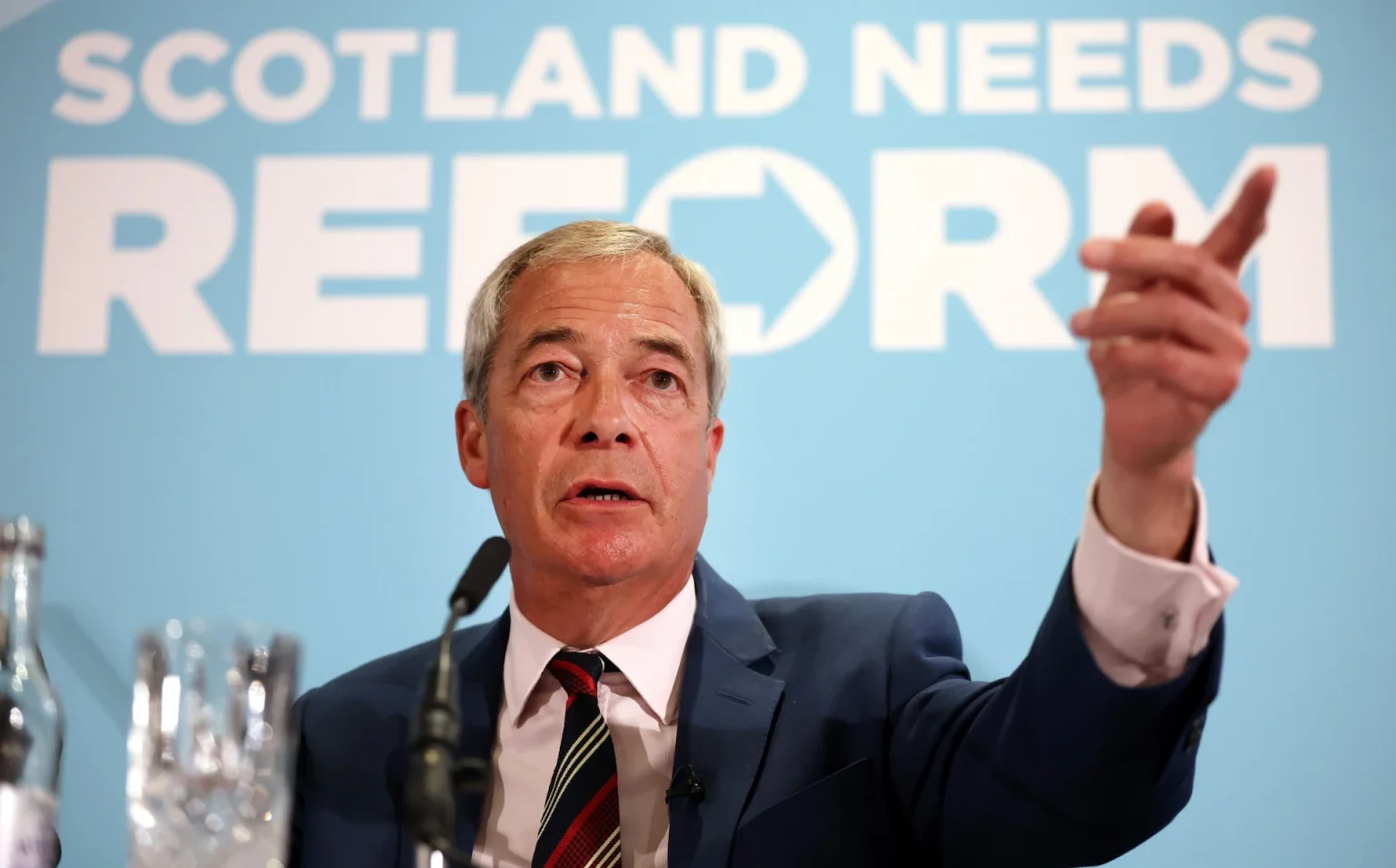Nigel Farage has claimed the Scottish Conservatives could face a total electoral wipeout at next year’s Holyrood elections, following the high-profile defection of Tory MSP Graham Simpson to Reform UK.
At a press conference in Edinburgh, Farage welcomed Simpson as the first Reform MSP under his leadership and said the defection marked the beginning of the Conservatives’ decline not just in Scotland, but also in Wales and northern England.
“I think next May the Scottish Conservatives will do so badly that they will cease to be a political force in Scotland,” Farage said, adding that similar outcomes could follow in other regions across the UK.
Simpson, who represented Central Scotland and had been a Conservative MSP since 2016, said it had been an “enormous wrench” to leave the party he joined at 15. However, he argued a new centre-right movement was needed in Scotland, claiming the Conservatives had lost their way.
Simpson confirmed he would stand for Reform in the next Holyrood election and had already begun helping shape the party’s manifesto. He issued an open invitation to former Tory colleagues to follow him.
Simpson’s defection comes amid growing discontent within the Scottish Conservative ranks. His departure follows that of Jeremy Balfour, who quit the party last week citing its shift towards “reactionary politics,” and Jamie Greene, who left earlier this year to join the Liberal Democrats.
Party sources attempted to discredit Simpson by alleging he had previously apologised for bullying a young female staff member. Simpson strongly denied the claim, calling it “absolutely untrue” and part of the “nastiness” he had come to expect from political infighting.
“That’s the kind of nastiness I was alluding to earlier,” Simpson said. “They’ve come out of the traps sooner than I thought.”
Farage said Reform’s goal is to win enough seats to help remove the SNP from power, even suggesting a potential post-election partnership with Labour, despite previous clashes with Labour leader Anas Sarwar.
“It’s remarkable what mathematics can do after elections,” Farage said, hinting at a willingness to collaborate to change the current balance of power.
He added that Reform would elect a Scottish leader after candidate selections, denying that Simpson had been lined up for the role behind the scenes.
Though Holyrood’s proportional representation system makes it difficult for any party to win an outright majority, Farage insisted Reform could play a pivotal role in shifting the political landscape.
Opposition parties were quick to respond to the defection. Scottish Labour’s deputy leader, Dame Jackie Baillie, dismissed Simpson’s switch as a career-saving move, adding: “It’s clear that Reform are simply Tories by another name.”
Scottish Liberal Democrat leader Alex Cole-Hamilton described the Conservatives as “in freefall” and appealed to moderate voters to move to his party.
Meanwhile, UK Business Secretary Kemi Badenoch, speaking from Teesside, accused Reform of abandoning centre-right values. “People who are leaving the Conservative Party are showing they were never Conservatives,” she said.
The Scottish Conservatives issued a brief statement affirming their focus on holding the SNP and Labour to account. A party spokesperson said: “Nigel Farage has said he’s content with another five years of SNP Government. We’re going to keep focusing on how to get the nationalists out of power.”
Despite the controversy, Simpson remained defiant, saying his decision was driven by “soul-searching” and a desire to restore “fresh thinking” to Scottish politics.
“I know this announcement will spark anger and disappointment,” he said. “But I also know many former colleagues will understand.”



